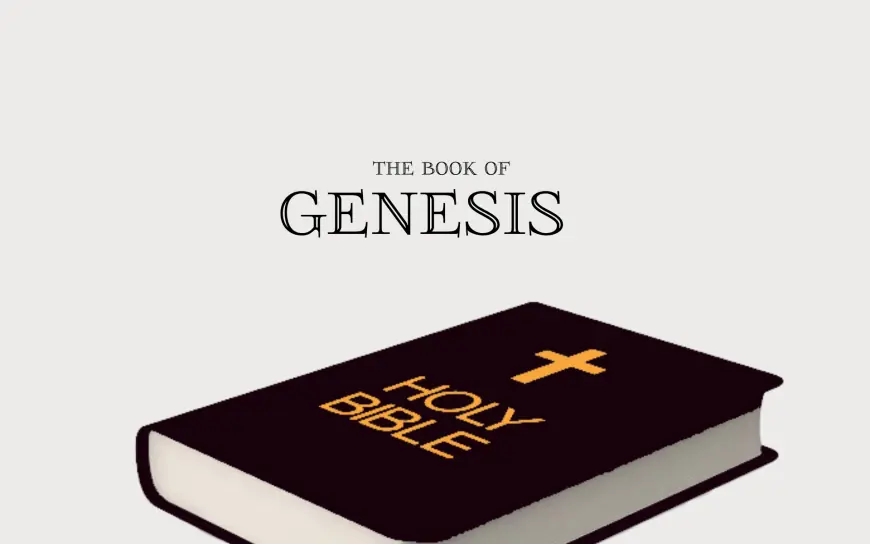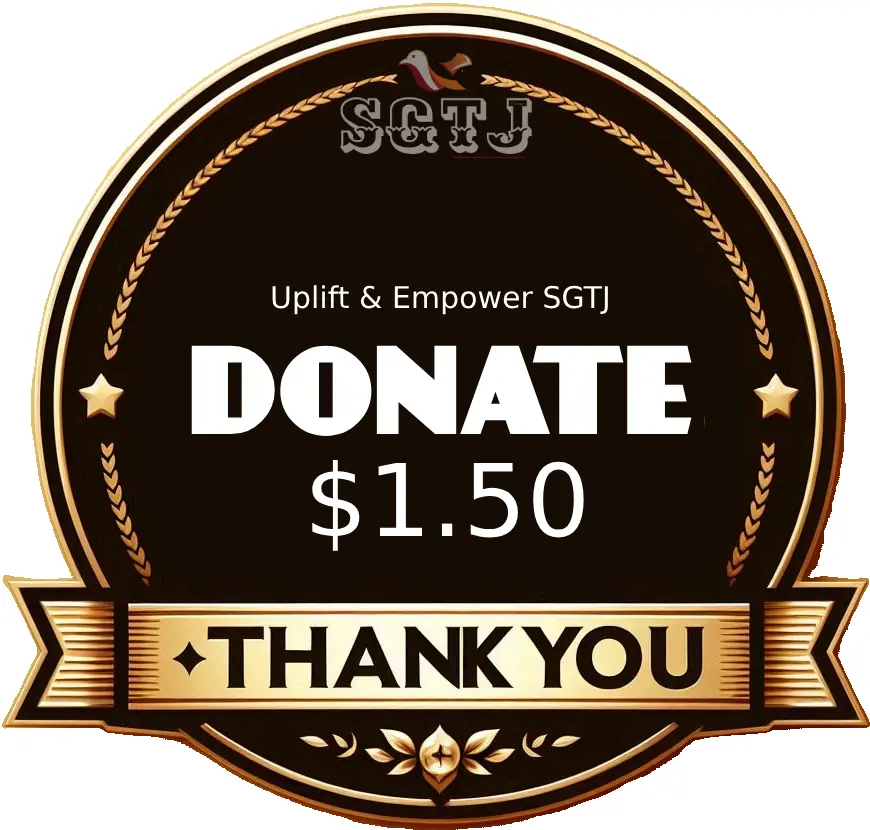The book of Genesis
SGTJ: Free Bible reading, and easy commentaries without distractions. The Book of Genesis, the first book of the Holy Bible consists of fifty chapters, also often referred to as the “book of beginnings”

HOLY BIBLE
ABOUT THE BOOK OF GENESIS
| Genesis ► |
The Book of Genesis is the first book of the Holy Bible. Often referred to as the “book of beginnings” Genesis covers the creation of the world, the early history of humanity, and the origins of the Jewish people.
Genesis is divided into two main parts:
1- Primeval History of Genesis starts from Genesis 1 to Genesis 11: This section includes the creation narrative, the story of Adam and Eve, the Great Flood, and the Tower of Babel. It sets out the relationship between God and humanity, highlighting themes of creation, sin, and redemption.
2- Ancestral History of Genesis starts from Genesis 12 to Genesis 50: This part focuses on the patriarchs of the Jewish faith—Abraham, Isaac, Jacob, and Joseph. It tells the story of God’s covenant with Abraham and his descendants, leading to the formation of the nation of Israel.
Genesis is foundational for both Judaism and Christianity, providing theological insights into the nature of God, humanity, and the world. It also introduces key themes and narratives that are developed throughout the rest of the Bible.
We are still working to publish all the 50 chapters of the book of Genesis:
- Genesis 1: Online Bible - Audio and PDF version
- Genesis 2: Online Bible - Audio and PDF version
- Genesis 3
- Genesis 4
WE ARE STILL WORKING ON PUBLISHING THE HOLY BIBLE WITH EASY COMMENTARIES
| Genesis ► |
Is there a specific part of the Holy Bible you’re interested in learning more about or do you have other questions? Let us know in the comment below or contact us.
COMMENTARY
Survey of the book of Genesis by BibleRef
Book Type: Book of Law (or Book of Moses); first book of the Old Testament; first book of the Bible; first book of the five-part Jewish collection known as the Torah.
Author: Moses is the traditional author of this book; Genesis is part of the "Law of Moses."
Audience: Moses wrote Genesis to the Jewish people during their forty-year wilderness journey in the Sinai Peninsula.
Date: Written during the forty years in the wilderness, approximately 1440–1400 BC. Genesis means "beginning," and this book describes the very first moments of God's creation. This story then proceeds through the time when the nation of Israel came to live in Egypt.
Overview: Genesis consists of fifty chapters, giving a quick overview of the history of the nation of Israel. The first eleven chapters deal broadly with the entire world, giving an extremely concise explanation of the state of mankind as various scattered, divided, fallen nations. The remaining thirty-nine chapters focus on the history of the nation of Israel, leading up to their settlement in the land of Egypt prior to the events of the book of Exodus.
Chapters 1 and 2 describe the creation of the world. These verses are the only details given on the entire process by which God made the world, and all life within it, including human beings.
Chapters 3—5 explain the fall of man, caused by the sin of Adam and Eve. This includes Eve's temptation by the serpent; Cain's murder of his brother, Abel; and the beginnings of human society.
Chapters 6—9 describe the flood, where God wipes out virtually the entire human race in response to their pervasive wickedness. Only Noah and his immediate family are spared, in a wooden vessel designed by God: the ark. After this catastrophe, God blesses Noah and vows to never again destroy the earth with a flood of water.
Chapters 10—11 explain the lineage and dispersion of human nations. After the flood, man once again attempts to defy God, in part by building a large tower. In response, God confuses their languages and scatters man across the globe, leading to the diverse people described in chapter 10's "table of nations."
Chapters 12—24 contain the story of Abraham, originally named Abram, who is the first man explicitly "called" by God. God establishes a covenant with Abraham, promising to make his descendants into a great nation, and a blessing on the entire human race. Along the way, Abraham learns to live out a trusting faith; this is tested in the extreme by God's command to sacrifice Abraham's son, Isaac, an act which God does not actually allow to occur.
This section also includes a depiction of God's destruction of the cities of Sodom and Gomorrah. These cities are marked for judgment for a long list of depraved sins. Lot, Abraham's nephew, is living in Sodom and is barely rescued by angels before God brings down fire on the city.
Chapters 25—35 are mostly composed of the story of Isaac, Abraham's son, and Isaac's son, Jacob. Jacob schemes to earn his father's blessings, at the expense of his older twin brother, Esau. Jacob flees his family to avoid Esau's wrath, and is heavily disciplined by God during his travels. Along the way, Jacob becomes very successful. In a pivotal moment, Jacob wrestles with God, earning both a permanent limp and a new name: Israel.
Chapter 36 describes the descendants of Jacob's brother, Esau. These people became the Edomites.
Chapters 37—50 relate the origins of the twelve tribes of the nation of Israel, as part of the story of Joseph, one of Jacob's sons. The sons of Jacob, who will later be re-named Israel, are jealous of Jacob's favoritism of Joseph, as well as Joseph's uncanny wisdom and ability to interpret dreams. The brothers sell Joseph into slavery in Egypt, telling their father the boy is dead. While in Egypt, Joseph's unique character brings him through various hardships, and he eventually rises to become second-in-command over the entire nation.
When a famine brings Joseph's brothers to Egypt, seeking food, the family is reunited. First, though, Joseph thoroughly tests his brothers, humbling them for their treachery. Jacob's family—and the patriarchs of the twelve tribes—are saved by Joseph's actions, and they settle in the land of Egypt. At this time, Israel is welcomed and beloved by Egypt.
These events set the stage for the story of the Exodus, which occurs several centuries later. By then, a less-friendly Pharaoh will have enslaved the nation of Israel, and will see the exploding Jewish population as a threat.
Key Verses (ESV):
Genesis 1:1: "In the beginning, God created the heavens and the earth."
Genesis 2:7: "Then the LORD God formed the man of dust from the ground and breathed into his nostrils the breath of life, and the man became a living creature."
Genesis 3:14–15: "The LORD God said to the serpent, 'Because you have done this, \ cursed are you above all livestock \ and above all beasts of the field; \ on your belly you shall go, \ and dust you shall eat \ all the days of your life. \ I will put enmity between you and the woman, \ and between your offspring and her offspring; \ he shall bruise your head, \ and you shall bruise his heel.'"
Genesis 6:5: The LORD saw that the wickedness of man was great in the earth, and that every intention of the thoughts of his heart was only evil continually."
Genesis 7:20–21: "The waters prevailed above the mountains, covering them fifteen cubits deep. And all flesh died that moved on the earth, birds, livestock, beasts, all swarming creatures that swarm on the earth, and all mankind."
Genesis 11:7–8: "'Come, let us go down and there confuse their language, so that they may not understand one another's speech.' So the LORD dispersed them from there over the face of all the earth, and they left off building the city."
Genesis 12:1–3: "Now the LORD said to Abram, 'Go from your country and your kindred and your father's house to the land that I will show you. And I will make of you a great nation, and I will bless you and make your name great, so that you will be a blessing. I will bless those who bless you, and him who dishonors you I will curse, and in you all the families of the earth shall be blessed.'"
Genesis 17:5: "No longer shall your name be called Abram, but your name shall be Abraham, for I have made you the father of a multitude of nations."
Genesis 19:24–25: "Then the LORD rained on Sodom and Gomorrah sulfur and fire from the LORD out of heaven. And he overthrew those cities, and all the valley, and all the inhabitants of the cities, and what grew on the ground."
Genesis 35:10: "And God said to him, 'Your name is Jacob; no longer shall your name be called Jacob, but Israel shall be your name.' So he called his name Israel."
Genesis 41:38–40: "And Pharaoh said to his servants, 'Can we find a man like this, in whom is the Spirit of God?' Then Pharaoh said to Joseph, 'Since God has shown you all this, there is none so discerning and wise as you are. You shall be over my house, and all my people shall order themselves as you command. Only as regards the throne will I be greater than you.'"
Genesis 45:4–5: "So Joseph said to his brothers, 'Come near to me, please.' And they came near. And he said, 'I am your brother, Joseph, whom you sold into Egypt. And now do not be distressed or angry with yourselves because you sold me here, for God sent me before you to preserve life.'"
Genesis 50:19–21: "But Joseph said to them, 'Do not fear, for am I in the place of God? As for you, you meant evil against me, but God meant it for good, to bring it about that many people should be kept alive, as they are today. So do not fear; I will provide for you and your little ones.' Thus he comforted them and spoke kindly to them."
Read more commentaries on BibleRef.
What's Your Reaction?





























